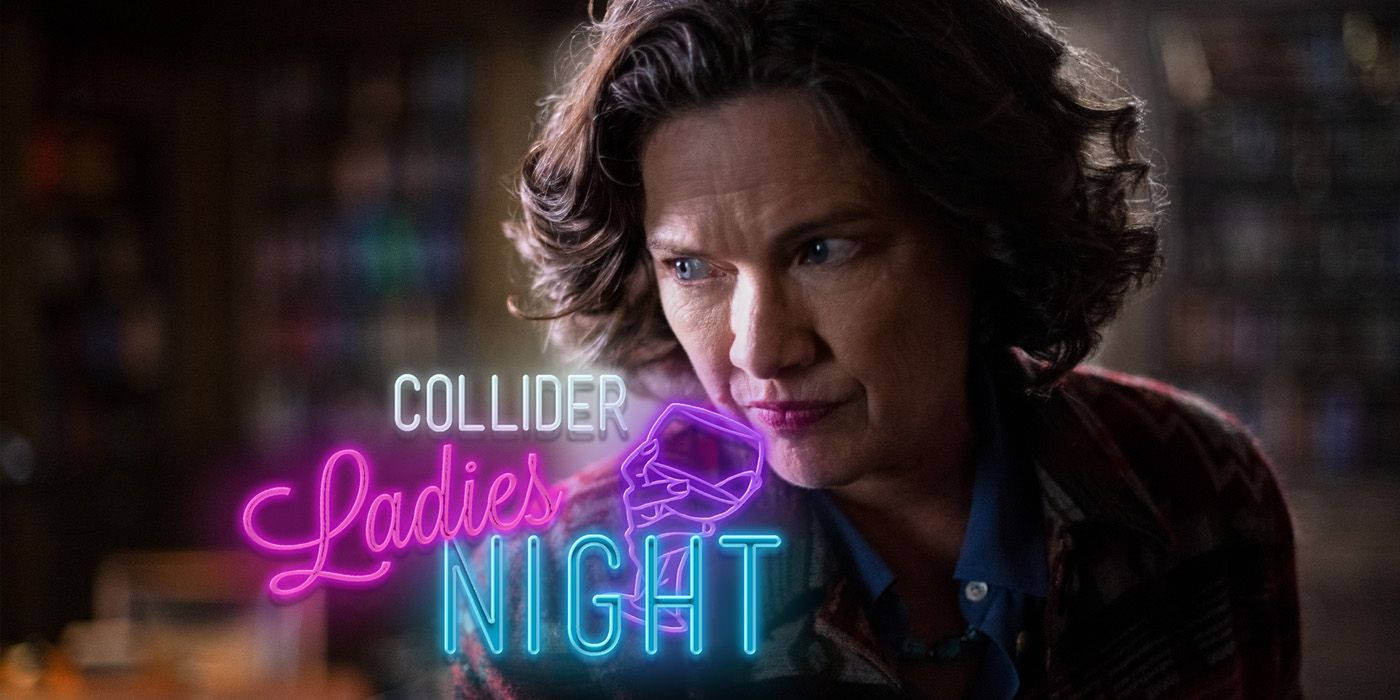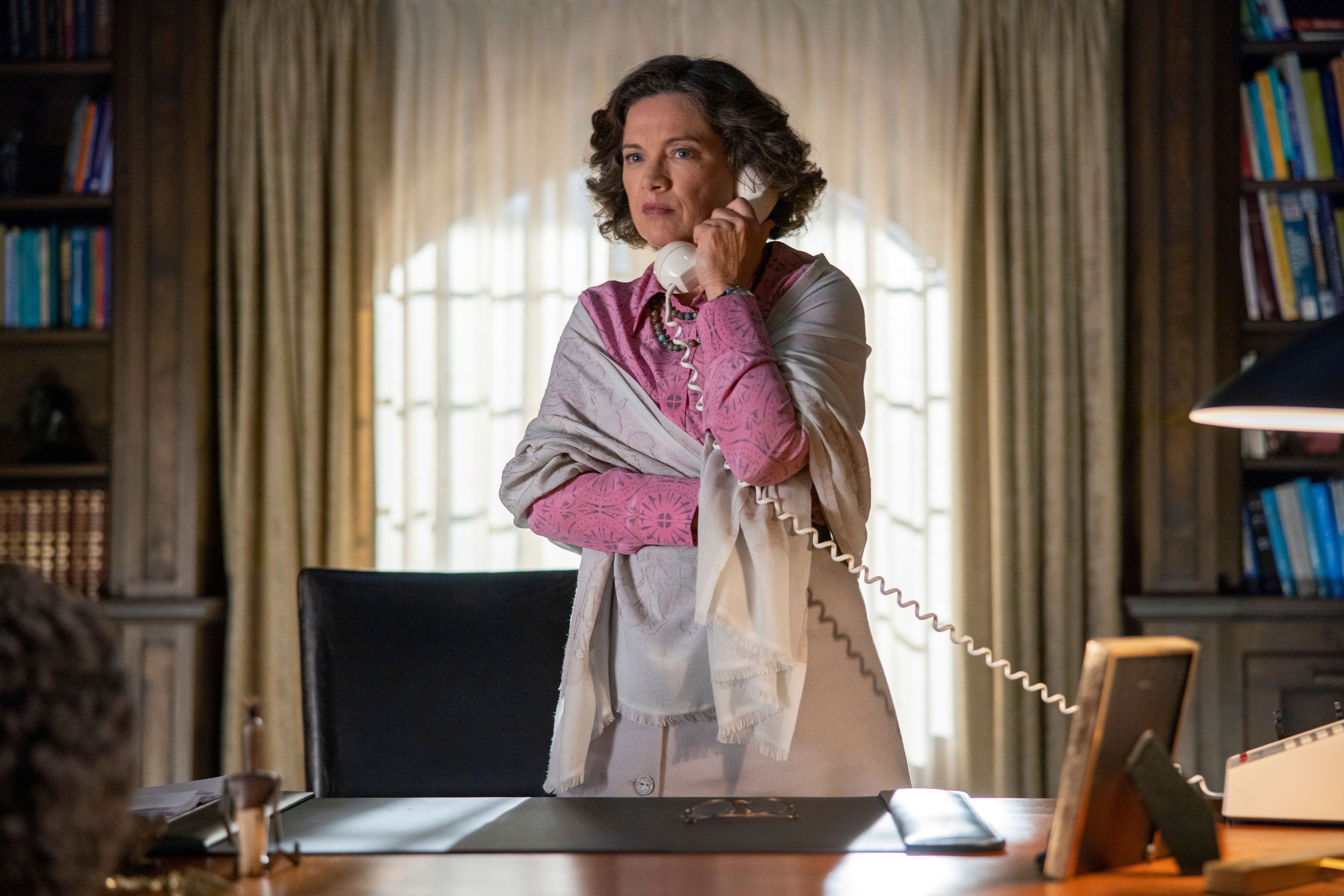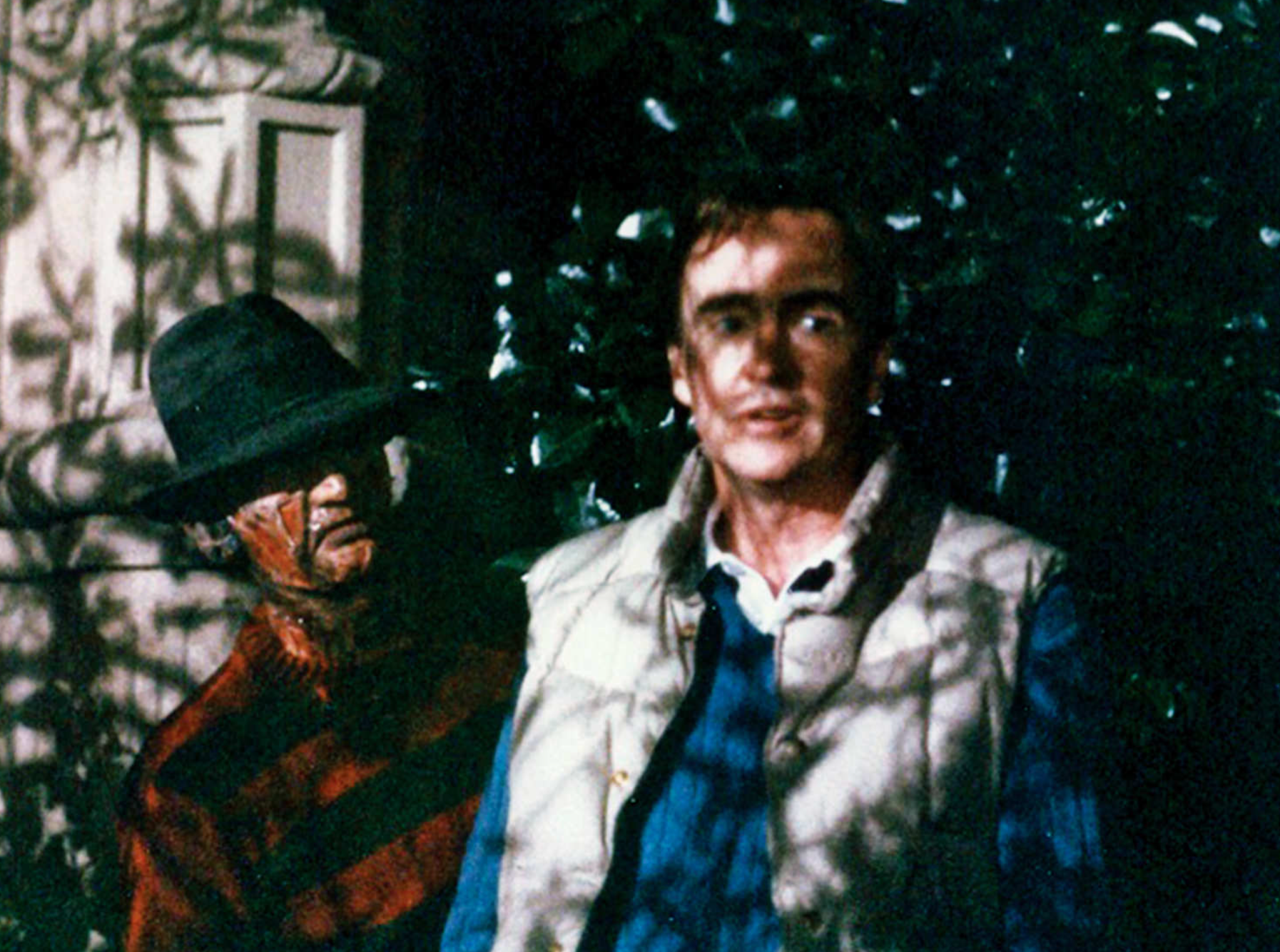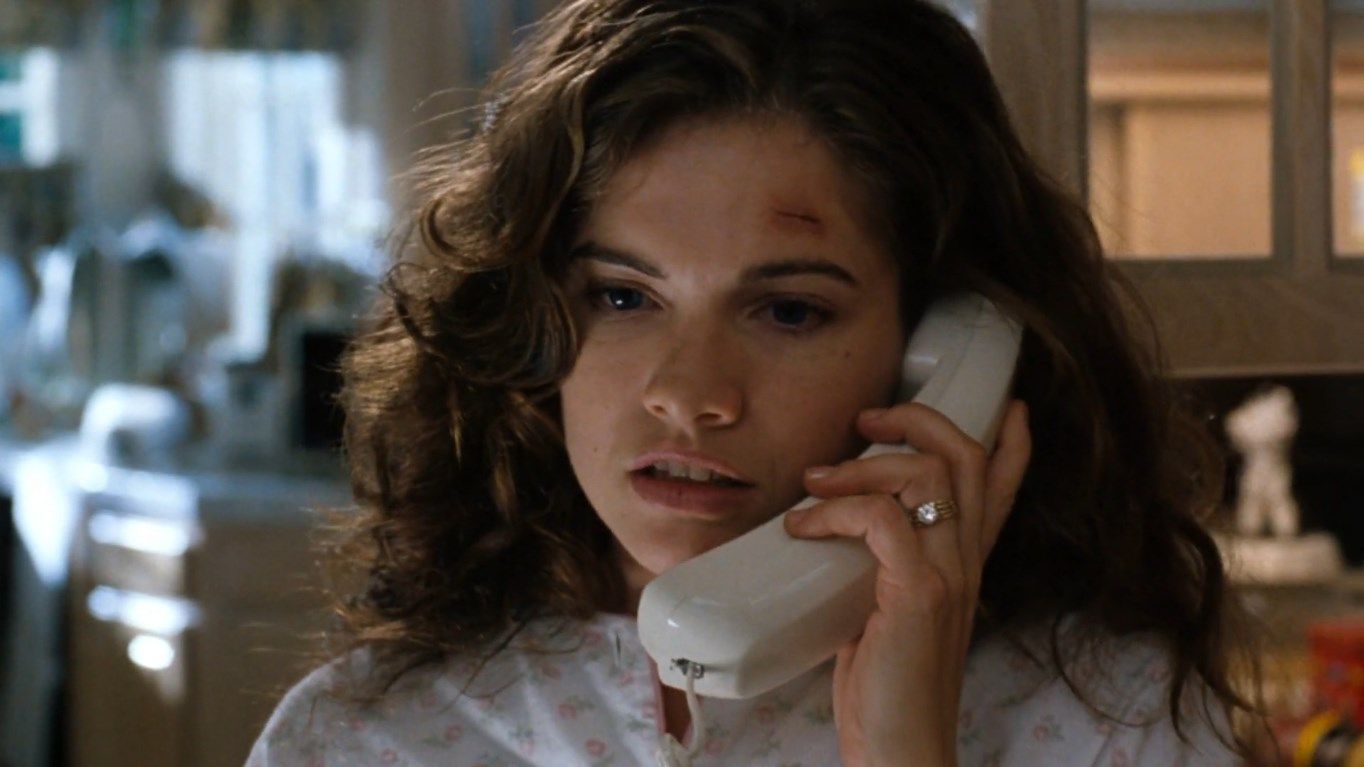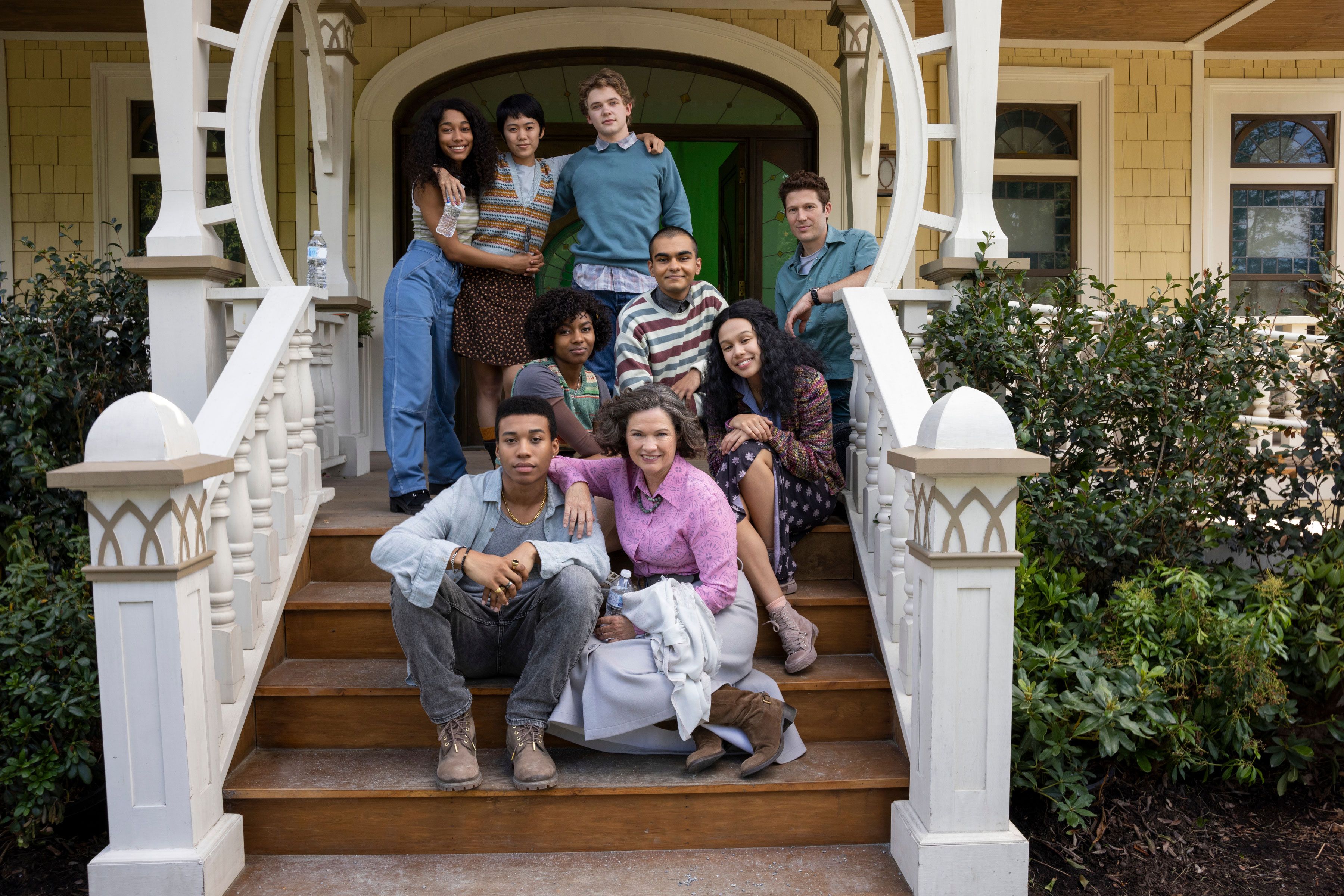Heather Langenkamp is a horror icon courtesy of her work as Nancy in A Nightmare on Elm Street. When you strike gold with an opportunity like that, it’s hard to imagine ever finding another role that’s on that same level. Langenkamp even said as much; “I knew nothing could be as good as Nancy. I've always felt that as a teenager and as a woman who grew up looking for good roles, it was really hard to find roles as good as that one.” But, then The Midnight Club came her way. She continued, “Except for now. I really feel like I found a role that's just as good as Nancy.”
Langenkamp plays Dr. Georgina Stanton in The Midnight Club on Netflix. She runs Brightcliffe, a hospice for terminally ill young adults. Dr. Stanton insists on giving her residents the trust, care, and support they need to “focus on living instead of fighting.” She understands some come to Brightcliffe leaning into unorthodox remedies and doesn’t judge them for it, but it’s the one that her newest resident, Iman Benson’s Ilonka, falls into that does become quite concerning.
While celebrating the show’s big debut at New York Comic Con, Langenkamp took the time to join us for an episode of Collider Ladies Night to revisit her journey from becoming a genre legend via A Nightmare on Elm Street to joining the cast of Mike Flanagan’s latest Netflix series.
Given the fact that we’ve now seen nine Nightmare of Elm Street movies, including Freddy vs. Jason, Freddy Krueger is engrained in pop culture. The idea of a guy with knives for fingers who contorts his victim’s dreams, killing them in their sleep just makes sense. But can you imagine hearing about that idea for the very first time when no proof of concept existed? Not only was Langenkamp in that exact position when she committed to do the film, but she wasn’t even told about Freddy Krueger before signing on the dotted line. Langenkamp made the choice to commit to the role of Nancy based on reading one scene that gave her the impression that it’d be a John Hughes-like movie. She explained:
“It was the sides of the scene where it's Tina and Glenn and I at the slumber party and he’s lying to his aunt and uncle that he's out with his friends, but he's really with us. That scene was the scene we read first, so I just thought this was like a John Hughes fun movie about teenagers, you know? Didn't really get the sense that it was gonna be a horror movie until they sent me the script much later and I'm like, ‘What is this? People on the ceiling? Oh my gosh, blood coming out of a bed!’ I didn't really know what to expect, and my imagination was so limited at that time for horror. I had no idea what I was in for. I had more of a Wizard of Oz mentality about what horror was gonna look like.”
A Nightmare on Elm Street director Wes Craven would go on to become one of the most renowned horror filmmakers of all time. He had made a few films pre-Nightmare like The Last House on the Left and The Hills Have Eyes, but Craven had yet to solidify himself as an undeniable force in the genre when things first got going for Elm Street. Langenkamp continued:
“No one really knew what Wes Craven was capable of so it could have gone the other way just as easily. It could have been just a footnote in Hollywood history that a very inexpensive horror movie was made and no one ever heard about it again. I mean, that was definitely a possibility. Nobody had heard about Wes Craven, really. I remember people weren't that excited about me doing a horror movie. They thought that that would be very stigmatizing and that people wouldn't get to see me in the John Hughes happy teenager movies that were also being made at that time. I was really desperate to stay in Hollywood. I knew that if I could just make wages for that movie, that five week movie, that I could stay probably another couple of months without having to go back home. I knew it would prevent me from having to have a waitress job for a few months.”
Forget making enough money to stay in Hollywood. Langenkamp became the centerpiece of a hugely successful film franchise playing a character who’d inspire countless horror lovers with Nancy’s tenacity and fight — yours truly included. The Nightmare on Elm Street films feature some of the boldest downright bonkers kill set pieces of all time, scenes that Langenkamp could only wrap her head around with the support of a visionary like Craven. Here’s what Langenkamp said when asked for a time when Craven gave her a note that made all the difference:
“I'm a very literal person, so if things don't make sense to me I would always want an explanation, like, ‘Okay, tell me why Nancy is doing this thing.’ And then he would just look at me and say, ‘Heather, it's a nightmare. Anything goes.’ And so he would never let me over-reason, be overly logical. He's like, ‘This is a dream. Just have fun with it,’ and that you don't always have to come with all this backstory and all prepared because it's a dream, you know? It can be wild, it can be unusual and you can have different ways of playing it that would all work.”
That hugely successful collaboration would ultimately pave the way to Langenkamp agreeing to take on a role for Craven that she was very hesitant to tackle, playing herself in New Nightmare. (A personal favorite Langenkamp performance, in fact!) She explained:
“I think my willingness to play Heather Langenkamp is more of a reflection of how much I cared about Wes than it was about my desire to do that. He had to kind of really convince me that it was gonna be okay. I trusted him that it wasn't gonna be terrible, because my biggest fear was that nobody would buy the premise and that it would be a laughingstock of Hollywood or something and then here it would be my name attached to it. That's my selfish fear. And so he worked on me for a couple of days in the very early moments of showing me the script because I just didn't have the imagination again. I was deficient in understanding that it would be a good movie. Once we got onto the set, whenever I had trouble — like at one point I didn't want to say that my mother had been in a mental institution. You know, Heather Langenkamp doesn't want to say that my mom was at a mental institution. And so, he and I argued about that point because he really wanted me to say it, and I didn't say it. I just put my foot down. I'm like, ‘I'll do anything for you, but I won’t do that.’”
Speaking up and ensuring her voice is heard when something doesn't feel quite right is something that Langenkamp continued to do throughout her career. Given the fact that that can be a scary thing to do on a film set, I asked Langenkamp about how she goes about making her voice heard in such a situation. Here’s what she said:
"Even on Midnight Club, there's moments when you're asked to say something that maybe you can't fully really get your heart around it, or your brain. I'm very specific. I’ll say, ‘This line it's stopping me. I don't know why. I'm not really able to figure out how to deliver this line.' And then I would say, 'Could we perhaps change it to this or would you think about changing it to that, or use this word instead of that word?' And I'm always prepared for a no, which I'd say 80% of the time they say no, but I know that I've said my piece, and then I always will say, 'Well, I disagree,’ and then I'll get on with it. [It’s] just [to] know that I had an opinion and they know that I disagreed with their answer. It's always civil and everyone hopefully has the sense of, we need to work together in kindness and find that. But yeah, I am happy when I'm able to do that, too, because then you establish yourself as someone who cares so much that you're actually looking at every single word, and you're coming to work with all these ideas. And I think it lets them know that you're not just coming and spitting out lines and leaving at the end of the day.”
Not only did Langenkamp come to The Midnight Club with ideas, but also with a significant amount of experience and willingness to bring parts of herself to the role of Dr. Stanton. Here’s what she said while discussing the similarities between Nightmare’s Nancy and Dr. Stanton:
“Nancy has so many great qualities and we saw her kind of grow up and become a woman too, and she was a therapist in Nightmare 3 of course and doing group therapy sessions. Of course people are going to draw a lot of comparisons to that. In the end, I think you sometimes do your best work when you use parts of yourself in the role and I love kids so much, and young people especially I feel like we need to do as much as we can to kind of be their mentors and help them get through life, which is so trying, and I just felt that that part of me was really so similar to Dr. Stanton. And so it kind of fit like a glove, the part. I never felt like I had to do a lot of extra research like, how do I be this doctor, this woman who’s taken responsibility for all of these sick children? I don't think personally I could do what she does, but I have a glimpse of what kind of person I wanted her to be.”
There was no winding down the conversation without asking Langenkamp about her experience working with The Midnight Club’s downright stellar up-and-coming ensemble. In an effort to highlight as many members of the cast as possible, I asked Langenkamp for something she saw them do that she wishes she could pocket and bring back to her younger self first getting her start with A Nightmare on Elm Street. She began with Iman Benson:
“Iman is very calm and she can concentrate very hard on what she's doing, and I really admire the way she is able to be the lead in a show. It made me realize as Nancy, I worked for five weeks and we made an entire movie. She had to work for so many months maintaining that character and never get tired or bored or, are we done yet? None of that. Every day, even the last day, she was just so ready to be that really intense person, and it was an intense role, and so I could really feel for her.”
Langenkamp also highlighted a particular quality that Annarah Cymone has, something she couldn’t quite tap into with Nightmare’s Nancy at that age:
“Annarah, she has this ethereal incredible soft beauty that is so appealing. A lot of times I wish I had more of that as Nancy because a lot of people say that Nancy was more of an asexual teenager, the parts of her sexuality are not really on display in Nightmare 1. And I kind of agree with that. And yet I didn't really have that thing and I don't know why, but I don't feel like I brought that to the screen. But in Annarah I see something that I would have loved to have had a handle on.”
Eager to hear Langenkamp’s thoughts on even more of The Midnight Club cast? You can find just that and so much more in her episode of Collider Ladies Night at the top of this article or in the uncut version of the conversation in podcast form below:

